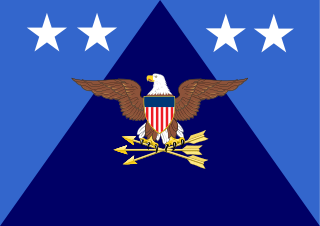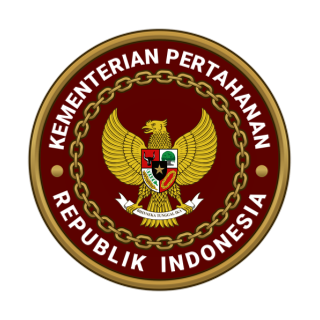A head of state is the public persona who officially embodies a state in its unity and legitimacy. Depending on the country's form of government and separation of powers, the head of state may be a ceremonial figurehead or concurrently the head of government and more.
The Roman Curia comprises the administrative institutions of the Holy See and the central body through which the affairs of the Roman Catholic Church are conducted. The Roman Curia is the institution which the Roman Pontiff ordinarily makes use of in the exercise of his supreme pastoral office and universal mission in the world. It is at the service of the Pope, successor of Peter, and of the Bishops, successors of the Apostles, according to the modalities that are proper to the nature of each one, fulfilling their function with an evangelical spirit, working for the good and at the service of communion, unity and edification of the Universal Church and attending to the demands of the world in which the Church is called to fulfill its mission.

The Office of Management and Budget (OMB) is the largest office within the Executive Office of the President of the United States (EOP). OMB's most prominent function is to produce the president's budget, but it also examines agency programs, policies, and procedures to see whether they comply with the president's policies and coordinates inter-agency policy initiatives.
Voivode, also spelled voivod, voievod or voevod and also known as vaivode, voivoda, vojvoda or wojewoda, is a title denoting a military leader or warlord in Central, Southeastern and Eastern Europe in use since the Early Middle Ages. It primarily referred to the medieval rulers of the Romanian-inhabited states and of governors and military commanders of Ukrainian Cossacks, Hungarian, Balkaners, Russian people and other Slavic-speaking populations.

The president of the Republic of Costa Rica is the head of state and head of government of Costa Rica. The president is currently elected in direct elections for a period of four years, which is not immediately renewable. Two vice presidents are elected in the same ticket with the president. The president appoints the Council of Ministers. Due to the abolition of the military of Costa Rica in 1948, the president is not a commander-in-chief, unlike the norm in most other countries, although the Constitution does describe him as commander-in-chief of the civil defense public forces.
A comptroller is a management-level position responsible for supervising the quality of accounting and financial reporting of an organization. A financial comptroller is a senior-level executive who acts as the head of accounting, and oversees the preparation of financial reports, such as balance sheets and income statements.

The under secretary of defense for personnel and readiness, or USD (P&R) is a high-ranking civilian position in the Office of the Secretary of Defense (OSD) within the United States Department of Defense responsible for advising the secretary and deputy secretary of defense on recruitment, career development, pay and benefits, and oversight of the state of military readiness. The under secretary is appointed from civilian life by the president and confirmed by the Senate to serve at the pleasure of the President.

The Ministry of Home Affairs, or simply the Home Ministry, is a ministry of the Government of India. It is mainly responsible for the maintenance of internal security and domestic policy. It is headed by Minister of Home Affairs.

The Ministry of Defence (MoD) is charged with coordinating and supervising all agencies and functions of the government relating directly to national security and the Indian Armed Forces. The President of India is the ceremonial commander-in-chief of the armed forces of the country. The Ministry of Defence provides policy framework and resources to the armed forces to discharge their responsibility in the context of the defence of the country. The Indian Armed Forces and Indian Coast Guard under the Ministry of Defence are primarily responsible for ensuring the territorial integrity of India.

The federal administration of Switzerland is the ensemble of agencies that constitute, together with the Swiss Federal Council, the executive branch of the Swiss federal authorities. The administration is charged with executing federal law and preparing draft laws and policy for the Federal Council and the Federal Assembly.

The Ministry of Foreign Affairs of the Republic of Lithuania is a governmental body of the Republic of Lithuania that shapes the national policy, and organises, coordinates, and controls its enforcement in the following areas: foreign affairs and security policy: international relations, economic security, foreign trade, protection of the rights and interests of the Republic of Lithuania and its persons and entities abroad; coordination of European Union membership; representing the Republic of Lithuania abroad diplomatic and consular relations, diplomatic service, Lithuanian national and diplomatic protocol, international relations; the policy of cooperation of the Republic of Lithuania; strengthening of expat connections with Lithuania. The Ministry of Foreign Affairs was established on 4 November 1918, shortly after Lithuania reestablished its independence.

The Royal Household of Spain, officially the Household of His Majesty the King, is the constitutional body whose primary function is to provide aid and support to the King of Spain in the exercise of his royal duties and prerogatives. These include his role as head of state and as commander-in-chief of the Spanish Armed Forces. It functions as the king's executive office.

The Republic of Cameroon is a decentralized unitary state.
The administrative structure of the government of the Empire of Japan on the eve of the Second World War broadly consisted of the Cabinet, the civil service, local and prefectural governments, the governments-general of Chosen (Korea) and Formosa (Taiwan) and the colonial offices. It underwent several changes during the wartime years, and was entirely reorganized when the Empire of Japan was officially dissolved in 1947.

The Ministry of Defense of the Republic of Indonesia is a government ministry responsible for the defense affairs of Indonesia. The ministry was formerly known as the Department of Defense until 2009 when the nomenclature changed based on Law Number 39 of 2008 dated 6 November 2008 concerning State Ministries, the name of the Department of Defense was changed to the Ministry of Defense of the Republic of Indonesia. The currently-appointed minister is Prabowo Subianto replacing Ryamizard Ryacudu on 23 October 2019.

The Presidency of the Council of Ministers is the administrative structure which supports the Prime Minister of Italy. It is thus the Italian equivalent of the Prime Minister's Office. It contains those departments which carry out duties invested in the office of the Prime Minister. Duties invested in the Italian executive government generally are not administered by the Presidency, but by the individual ministries.

The Cabinet of the Prime Minister's Office, officially Cabinet of the Presidency of the Government, is a political and technical assistance body at the service of the Prime Minister of Spain. The Cabinet of the Prime Minister is composed of multiple departments directly responsible to the Premier and coordinated by the Chief of Staff. The Cabinet Office, the officials that work on it, their offices and the departments make up the Office of the Prime Minister.

The Chief of Protocol (CoP) is a government official who heads the protocol department of a state, overseeing security, logistics and etiquette in diplomatic and national functions. A protocol department decides on diplomatic immunity and privileges, diplomatic host security, diplomatic use of airspace and it is the guardian of official etiquette. Advance protocol teams, usually headed by the Chief of Protocol, engage as first contact between governments for the planning of bilateral and multilateral summits and visits.

The Ministry of External Relations of the Dominican Republic is the government institution in charge of foreign affairs. It's responsible of coordinating the foreign policy of the Dominican Republic along the President, in accordance with Article 128 of the Constitution. It is commonly known as the Chancellery (Cancillería)














